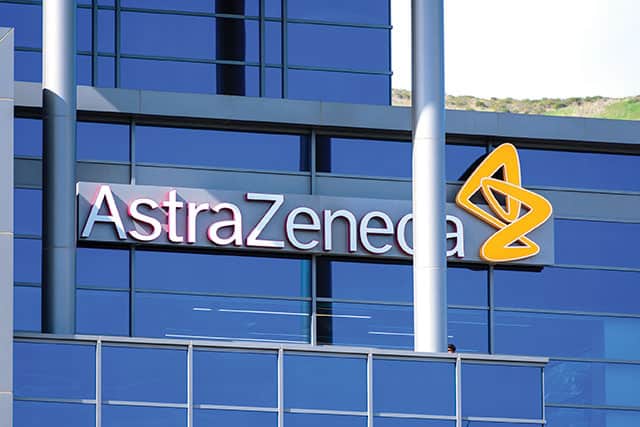
AstraZeneca’s (AZ) Imfinzi (durvalumab) in combination with standard of care chemotherapy demonstrated ‘clinically meaningful and durable overall survival benefit’ as a treatment for patients with advanced biliary tract cancer (BTC), according to updated results from a phase 3 trial.
The updated results from the TOPAZ-1 phase 3 trial showed the combination treatment enhanced clinical efficacy after an additional 6.5 months of follow-up, demonstrating a 24% reduction in the risk of death versus chemotherapy alone.
Moreover, greater than two times as many patients were estimated to be alive at two years versus chemotherapy alone (23.6% versus 11.5%).
Results were seen across all prespecified subgroups, regardless of disease status, tumour location or PD-L1 expression. Additionally, OS benefit was observed both in patients whose tumours stayed the same size, as well as in patients whose tumours got smaller or disappeared.
Critically, the safety profile of Imfinzi plus chemotherapy continued to be well-tolerated, with no new safety signals observed with longer follow-up.
Earlier this month, Imfinzi in combination with chemotherapy was granted approval by the US Food and Drug Administration (FDA) as a treatment for adults with locally advanced or metastatic BTC based on results from TOPAZ-1.
Regulatory applications are also currently under review in Europe, Japan and several other countries based on the TOPAZ-1 results, the company outlined.
BTC is a group of rare and aggressive gastrointestinal (GI) cancers that form in the cells of the bile ducts (cholangiocarcinoma), gallbladder or ampulla of Vater (where the bile duct and pancreatic duct connect to the small intestine). Approximately 50,000 people in Europe, the US and Japan and around 210,000 people worldwide are diagnosed with BTC each year. These patients face a poor prognosis, with approximately 5% to 15% of patients with BTC surviving five years.
“It’s exciting to see the improved overall survival delivered by [Imfinzi] plus chemotherapy over the current standard of care for patients with advanced BTC after a median follow-up of nearly two years,” said Do-Youn Oh, professor, division of medical oncology, department of internal medicine at Seoul National University Hospital and Seoul National University College of Medicine, and principal investigator in the TOPAZ-1 phase 3 trial.
“With limited treatment advances over the past decade, these patients have long faced a dismal prognosis. For the first time, an immunotherapy-based combination has shown the ability to alter the course of treatment for this disease and should become the new standard of care.”




